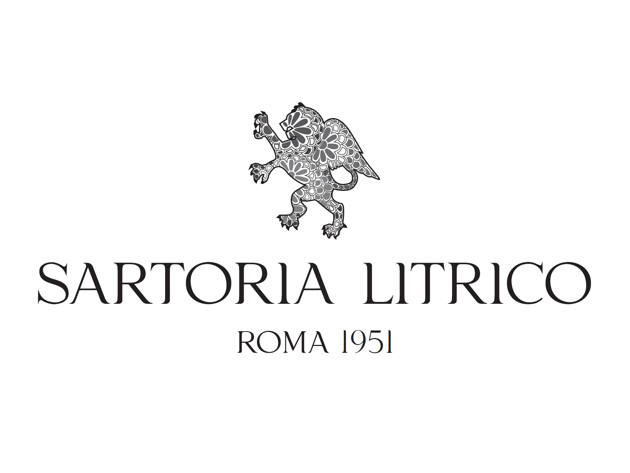
Your body is unique; your tailor knows it.
It was 1945, and while Italy was trying to get back on its feet after World War II, Angelo Litrico, born in 1927 and just turned eighteen, arrived in the Capital in search of what would – unbeknownst to him – make it possible for him to realize his dream. He was originally from Catania, and was the eldest of twelve children in a family of fishermen. He’d been passionate about the art of tailoring since he was a child, and had learned the rudiments from local Sicilian artisans.
One day, as he walked through the streets of Rome, close to Via Veneto, by strange prophetic coincidence, Angelo came across the Sartoria Marinelli in Via Sicilia. He started working there, and thanks to his passion and talent he soon became one of its most trusted employees, so much so that when Marinelli retired in 1951, Angelo took over the business, marking the beginning of the Sartoria Litrico.
He was ingenious and brilliant. In 1955, he made a stunning green tuxedo, and then bought tickets for the Teatro dell’Opera. In the intermission, he lingered in the theater foyer with the legendary and fascinating actor Rossano Brazzi, who noticed his tuxedo. Litrico gave him the address of the tailor, omitting to say that it was he who had made it, and the next day Brazzi and Gassman went to the atelier to be dressed from head to toe. This was the launch pad for his business: from that moment on, all the stars of the Dolce Vita became loyal customers.
In 1957, to make himself known internationally, he wrote a letter to Khrushchev, proposing his creations. Khrushchev responded enthusiastically, giving Litrico the opportunity to participate in the first men's fashion show in Kiev, at the time part of the Soviet Union. Khrushchev then went to the United Nations dressed in Litrico's clothes, and made an animated speech, during which he slammed one of Litrico’s shoes on the table. The attention immediately turned to the quality of the garments he was wearing, so much so that the title on the frontpage of the newspapers was: “Litrico cuts the iron curtain with scissors.”
He became famous worldwide, even arriving in Japan in 1960. Angelo therefore asked his youngest brothers, including Franco, to come to Rome and help him with the business. When Angelo died, it was Franco who took over the reins. He fully embraced his older brother’s concept, and loved repeating: “Your body is unique and your tailor knows it.”
Today the atelier is run by Luca Litrico, Franco’s son, who has been working there since 1991. He carries on the company’s wholesome philosophy, whose watchwords continue to be tradition, innovation, elegance, and Made in Italy. All the garments are rigorously produced in Italy, using Italian fabrics spun for the most part in Biella, such as Scabal fabrics, Piacenza, and – for their inimitable linings – Bemberg. Their success, especially on international markets, is due to the fact that they are reproposing luxury not as a brand, but as a rarity; exclusive suits which are difficult to find.
With the invaluable help of his wife Stefania, a designer who graduated from the Academy of Fine Arts, Luca continues to offer the Sartoria Litrico’s unmistakable elegance, by adding a line of perfumes to its clothing and footwear. Not just a suit, but a style.
Informaciones
Aperta su appuntamento
 Condividi
Condividi
Location
Para conocer todos los servicios de accesibilidad, visite la sección Roma accesible.












































